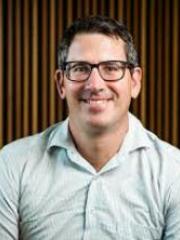Dr Michael Heitzmann

Researcher biography
Dr. Michael Tobias Heitzmann is the Co-Director for the Centre for Advanced Materials Processing and Manufacturing (AMPAM) and a Associate Professor at the School of Mechanical and Mining Engineering at The University of Queensland. The centre he co-directs brings together over 60 researchers and 110 PhD students working with over 124 different industry and research partners.
He is an expert in composite materials and processes with a strong industry focus. His research group at The University of Queensland is focused around the two areas: 'High temperature Composites' and 'Composite durability'. His expertise includes manufacturing process development and modelling, materials characterisation and composite mechanics. In the last 5 years, he has been awarded over $8.5M AUD in research funding as chief investigator (CI) of which over $3.5M AUD have been obtained as the lead CI. He has secured significant funding across the funding spectrum including, direct industry funding, CRC, ACARP, ARC Linkage and ARC Discovery projects. Since joining The University of Queensland in 2014, he has produced over 45 academic publications and is the inventor of 3 patents. He has graduated 6PhD students, 2 MPhil students and is the current supervisor of 10 PhD students and 3 research fellows.
As an academic with a strong industry focus, Dr. Heitzmann prides himself on his impact beyond tractional academic outputs. For example, he and his team have developed coal seam gas sucker-rod wear guides that are now use across Australia with over 1 million guides sold. In collaboration, with Prof. Glen Lichtwark, he developed the Cricket Australia test standard for cricket balls and overseen the certifications of all cricket balls currently being played in Cricket Australia men's competitions. He has also pioneered the development of high temperature ceramic matrix composites for hypersonic applications in Australia. His team has successfully developed and demonstrated the manufacture of polymer-matrix and ceramic-matrix composites for test campaigns including industry primes such as Lockheed Martin and Thales. He also played a significant role in the establishment of the Defence Science and Technology (DST) Eagle Farm Facility and has helped to shape the current high temperature composites development that is undertaken within DST.
From 2012 to July 2015, he was the project leader of the CRC-ACS "Plant fibre biocomposites" project (CRC-ACS P1.1), a 6.5M five year project. He was responsible for leading a multinational team of over 10 researchers including project partners form Australia, Canada, New Zealand, Thailand and Malaysia. Since taking over the project lead, he has successfully established a steering committee for the development of biocomposite design guidelines, engaged three additional research providers and introduced two new commercial end-users to the project. The license for commercialisation of the project outcomes has been issued to Queensland based agronomy company Agri Fibre Industries.
Before joining the University of Queensland he worked as a Senior Research Engineer for the commercial entity of the CRC-ACS, Advanced Composite Structures Australia. In this role he contributed and led composite research and development projects for major local and international companies such as QBE insurance, Brisbane Transport, Australian Aerospace, Airbus and PETRONAS.
